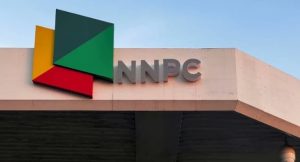
“A Giant Leap for Nigeria’s Energy Sector..”
The Nigerian National Petroleum Company Limited (NNPC Ltd.) is spearheading a transformative initiative aimed at modernizing its Kaduna Refinery and the second Port Harcourt Refinery. This bold move underscores Nigeria’s commitment to revitalizing its oil refining sector, reducing reliance on imported petroleum products, and achieving energy self-sufficiency.
The Scope of Modernization
The modernization project goes beyond the traditional Turnaround Maintenance (TAM) practices, incorporating comprehensive overhauls designed to restore optimal operations while upgrading both refineries to global standards. Advanced technologies and innovative processes are being integrated, ensuring enhanced safety, efficiency, and environmental compliance.
The second Port Harcourt Refinery, operating two plants with a combined capacity of 210,000 barrels per stream day (bpsd), is a central focus. This includes the older 60,000 bpsd hydroskimming refinery, which resumed operations in November 2024 following successful rehabilitation. The Kaduna Refinery, with a capacity of 110,000 bpsd, is also undergoing extensive upgrades to address chronic operational inefficiencies and align with modern environmental benchmarks.
Challenges in Nigeria’s Refining Sector
Nigeria’s refining industry has long grappled with inefficiencies, pipeline vandalism, outdated equipment, and poor maintenance culture. Despite possessing substantial oil reserves, the country has heavily relied on imported refined petroleum products, incurring significant foreign exchange costs.
In response, NNPC initiated its refinery modernization program in 2017, laying the groundwork for the current upgrades. This effort reflects a strategic pivot toward leveraging local refining capacity to meet domestic fuel demands.
Economic and Strategic Implications
The modernization of the Kaduna and Port Harcourt refineries is poised to deliver substantial economic and strategic benefits.
Key outcomes include:
- Increased Domestic Refining Capacity: With enhanced capabilities, Nigeria’s dependence on fuel imports is expected to diminish significantly, conserving foreign exchange.
- Job Creation: Thousands of direct and indirect jobs will emerge during the upgrade process and operational phases, stimulating local economies.
- Improved Energy Security: A self-sufficient refining sector bolsters Nigeria’s energy independence, reducing vulnerability to global supply chain disruptions.
- Economic Growth: A thriving refining sector attracts investment, boosts GDP, and solidifies Nigeria’s position as a player in the global energy market.
Government’s Commitment to Energy Independence
The Nigerian government has thrown its full weight behind NNPC’s modernization efforts, recognizing the pivotal role of energy security in national development. These projects align with broader policy objectives of reducing reliance on imports and fostering a resilient, self-sufficient energy sector.
Future Outlook and Challenges
While the modernization projects represent significant progress, challenges such as funding constraints, project management complexities, and potential disruptions must be carefully navigated. Success hinges on effective stakeholder collaboration and adherence to project timelines.
Upon completion, the upgraded Kaduna and Port Harcourt refineries will redefine Nigeria’s refining landscape, marking a new era of efficiency and sustainability. This transformation positions Nigeria to capitalize on its natural resources while mitigating economic vulnerabilities tied to fuel importation.
Conclusion
NNPC’s modernization of the Kaduna and Port Harcourt refineries is a testament to Nigeria’s resolve to rejuvenate its energy sector. By embracing advanced technology and adopting global best practices, the nation is set to achieve self-sufficiency in petroleum refining, driving economic growth and energy security. This ambitious project heralds a brighter future for Nigeria’s oil and gas industry, promising long-term benefits for its people and economy.

